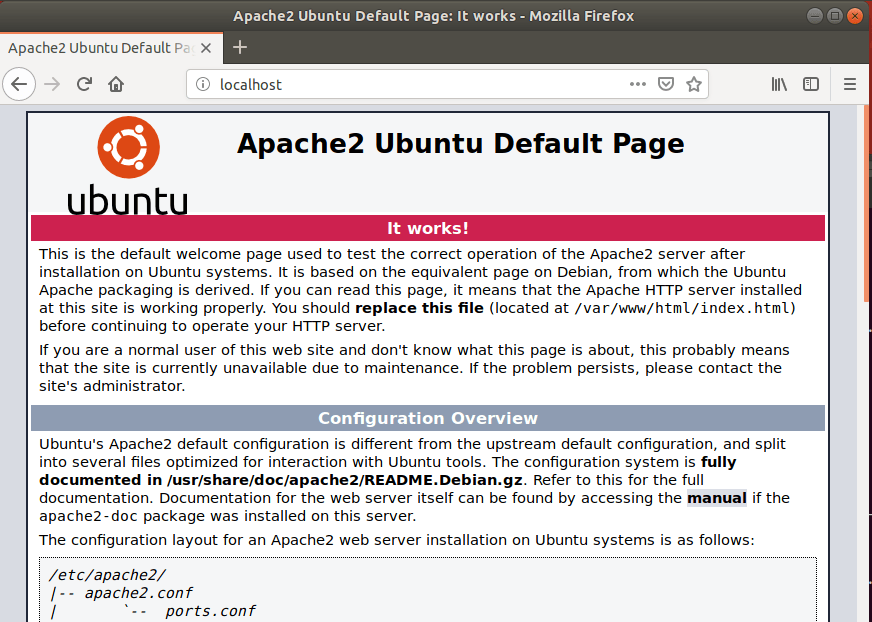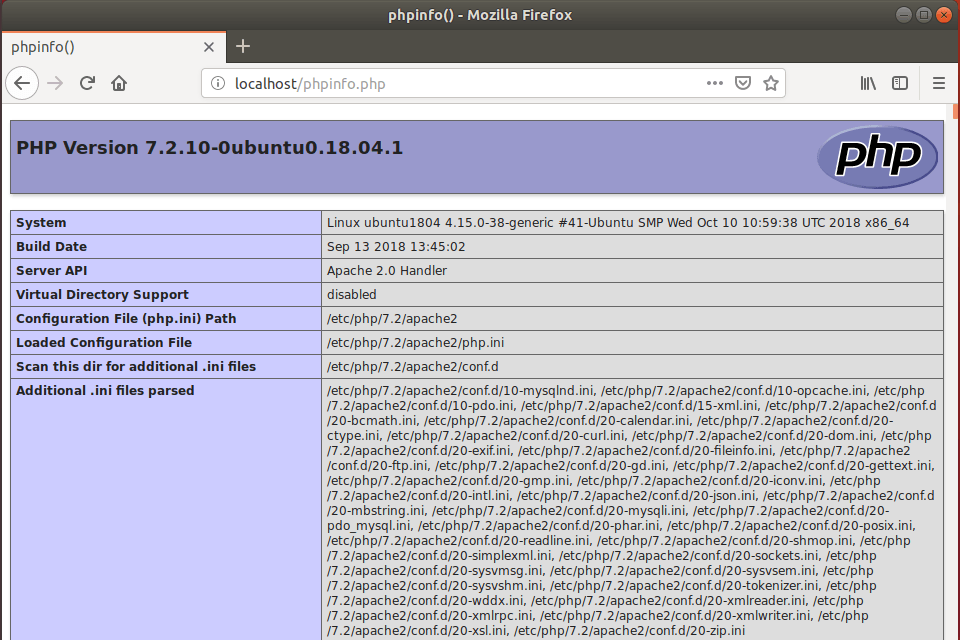If you are looking for a solution to build a database-less websites blogs, then CMSUno is a good place to start. No database servers are required, all data is stored in JSON files which makes it easier to install, faster to use, and very suitable for Ajax transfer. This CMS platform is designed for ease of use to allow webmasters to collaborate and automate engaging experiences with users across multiple devices, including mobile. For more about CMSUno, please check their Homepage To get started with installing CMSUno, follow the steps below:
Install Apache2 HTTP Server
CMSUno requires a web server and the Apache2 HTTP server is the most popular open-source web server available today. To install the Apache2 server, run the commands below: After installing Apache2, the commands below can be used to stop, start and enable the Apache2 service to always start up with the server boots. Now that Apache2 is installed. to test whether the web server is working, open your browser and browse to the URL below. If you see the page above, then Apache2 is successfully installed.
Install PHP 7.2 and Related Modules
CMSUno is a PHP-based CMS and PHP is required. However, PHP 7.2 may not be available in Ubuntu’s default repositories. To run PHP 7.2 on Ubuntu 16.04 and previous, you may need to run the commands below: Then update and upgrade to PHP 7.2 Next, run the commands below to install PHP 7.2 and related modules. After installing PHP 7.2, run the commands below to open the PHP default configuration file for Apache2. The lines below are a good setting for most PHP-based CMS. Update the configuration file with these and save. Every time you make changes to the PHP configuration file, you should also restart the Apache2 web server. To do so, run the commands below: Now that PHP is installed, to test whether it’s functioning, create a test file called phpinfo.php in the Apache2 default root directory. ( /var/www/html/) Then type the content below and save the file. Next, open your browser and browse to the server’s hostname or IP address followed by phpinfo.php You should see the PHP default test page.
Download CMSUno Latest Release
To get CMSUno latest release you may want to use the GitHub repository. Install the git tool to download CMSUno packages. After installing curl and Composer above, change into the Apache2 root directory and download CMSUno packages from Github. Then run the commands below to set the correct permissions for the CMSUno root directory and give Apache2 control.
Configure Apache2
Finally, configure the Apahce2 site configuration file for CMSUno. This file will control how users access WebsiteBaker content. Run the commands below to create a new configuration file called cmsuno. conf Then copy and paste the content below into the file and save it. Replace the highlighted line with your domain name and directory root location. Save the file and exit.
Enable the CMSUno and Rewrite Module
After configuring the VirtualHost above, enable it by running the commands below Then open your browser and browse to the server domain name followed by /uno/PHP You will see the CMSUno login page. The initial login & password : cmsuno & 654321 After logging on to the admin page, change the password. then start writing great content. After that, the site should be created and ready to use. Enjoy~ Congratulation! You have successfully installed CMSUno CMS on Ubuntu 16.04 | 18.04 and 18.10. You may also like the post below:



